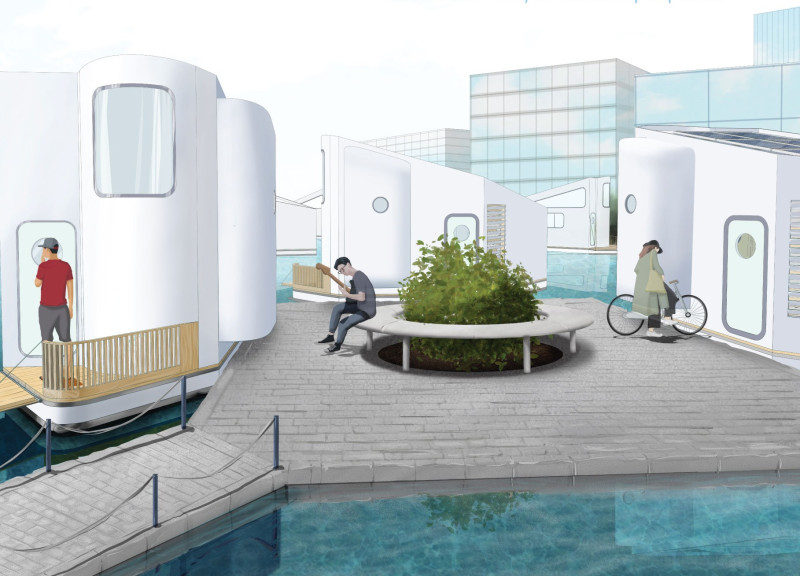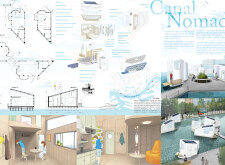5 key facts about this project
The function of the Canal Nomad project is multifaceted. It provides compact living spaces that accommodate the needs of contemporary residents while allowing for mobility and adaptability. Each unit serves as a self-contained dwelling, featuring essential amenities such as living and dining areas, kitchens, and bathrooms. The architectural design emphasizes both functionality and aesthetics, creating environments that facilitate comfortable living within a compact footprint.
Modular Floating Units
The main distinguishing feature of the Canal Nomad project is its modular floating units. These designs prioritize flexibility, allowing residents to rearrange or relocate their homes as needed. This approach effectively utilizes the canal space, acknowledging the limitations of traditional urban planning while providing an innovative living solution. The units are constructed from durable materials such as fiber-reinforced plastics and steel, ensuring longevity and resilience in a water-based context.
Sustainable Design Elements
Another critical aspect of the project is its commitment to sustainability. Each unit integrates renewable energy features, including solar panels that contribute to energy self-sufficiency. Additionally, the design includes biophilic elements such as large windows and outdoor spaces that foster a connection to nature. Communal areas and gardens enhance social interaction among residents, promoting a sense of community within the floating neighborhood. This architectural approach underscores the potential for living harmoniously within an urban waterway, setting a precedent for similar projects in the future.
To further understand the nuances of the Canal Nomad project, readers are encouraged to explore the architectural plans, architectural sections, and architectural designs that detail the thoughtful design process. Engaging with these materials will provide deeper insights into how the architectural ideas within this project serve to meet the challenges of modern city living.























